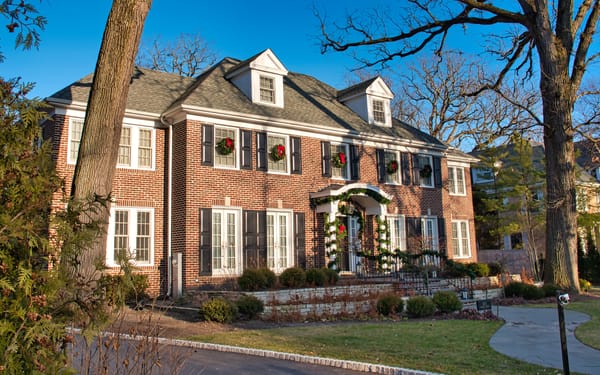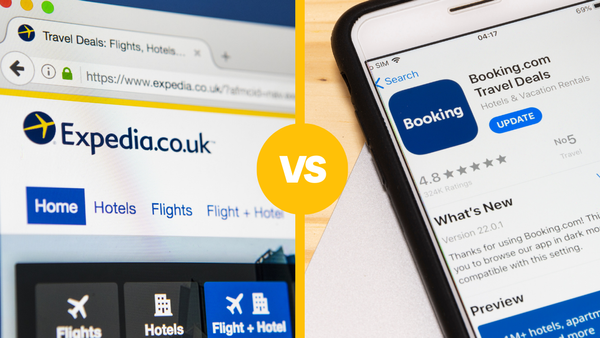Top 8 Rental Property Accounting Software in 2025

If you’re managing rental properties, you already know that manual work with spreadsheets quickly becomes overwhelming, especially if you’re growing a property management business. Rental property accounting software, enhanced by property management tools, automates many tedious tasks associated with managing residential rental properties.
Rental property accounting involves tracking income and expenses, generating financial and tax reports, and handling property and tenant data. The right tool saves property managers a significant amount of time and reduces the chances of human error. This is true for both landlords managing rental properties and vacation rental hosts.
With the right reliable software, you and your bookkeeper can avoid major headaches and a ton of stress when tax season rolls around. We’ve curated a list to help you understand which of these tried-and-true solutions is best for your needs and portfolio type.
- Accounting functionalities and features
- Compatibility with Property Management Systems (PMS)
- Rental property management functionality
- User reviews
Let’s take a closer look:
| Tool | Trial | Type | Minimum Monthly Cost |
|---|---|---|---|
| Quickbooks | Free 30 Days | Accounting Software | $30 |
| Xero | Free 30 Days | Accounting Software | $15 |
| Patriot | Free 30 Days | Accounting Software | $20 |
| Wave | Free Plan | Accounting Software | Free Plan / Paid Plan $16 |
| Stessa | Free Plan | Accounting Software for Rental Properties | Free Plan / Paid Plan $12 |
| Buildium | Free 14 days | Property Management Software | $55 |
| Appfolio | Free Demo | Property Management Software | $298 |
| Tenant Cloud | Free 14 Days | Property Management Software | $15.16 |
Standalone Accounting Solutions vs. All-in-One Property Management Software
When choosing the right rental property accounting software, there are three routes you can take: standalone accounting software, rental property management software, or all-in-one property management software that includes accounting and in-depth financial reporting.
Standalone accounting tools are used for financial management and reporting across all types of businesses, including property management. The most well-known example is QuickBooks, which has become a household name.
These tools typically feature:
- Invoicing and payments
- Expense tracking
- Bank reconciliation
- Financial reporting
- Payroll management
- Tax preparation
The big advantage of standalone accounting software is its affordability. These tools cost less compared to all-in-one property management software with a rich feature set and higher price tag.
The questions to ask yourself are: What stage is my business at? What functionalities will I be actively using in my day-to-day operations?
Landlords, real estate investors, and property management companies with extensive portfolios may opt for all-in-one property management solutions to avoid spreading themselves too thin across multiple tools. This can lead to greater automation and efficiency in managing properties.
While it makes sense for larger companies to pay for advanced features, smaller and medium-sized businesses may not need them. You’d wind up paying for expensive features that don’t get any use in your daily operations.
It’s also worth mentioning some hybrid solutions, like Stessa. While they don’t offer a full property management suite, they have included features like tenant screening, making them specialized accounting tools for rental properties.
Lastly, if you opt for standalone accounting software, make sure it can integrate with other tools, such as Property Management Systems (PMS), suitable for both residential and commercial properties. When it comes to vacation rentals, we will discuss the best practices later in this article.
Here, we cover the best of both worlds: specialized accounting software that works for property managers and PMS with strong accounting capabilities.
Let’s dive in.
1. Quickbooks
If you had to name one of the best accounting software off the top of your head, it would probably be QuickBooks. Is QuickBooks good for landlords and rental properties? QuickBooks is widely used across industries, including rental property accounting. It simplifies tracking rental income from multiple properties and tenants.
With four pricing tiers to match any company size, monthly costs start at $30. When you sign up, you get a 50% discount on all plans for the first 3 months. The higher-tier plans are priced at $60, $90, and $200 per month for the enterprise level. The company offers both online and desktop versions. QuickBooks Online is a cloud-based solution accessible from any device with an internet connection, designed for real-time collaboration among multiple users, while QuickBooks Desktop is installed locally on a computer.
Key Features
- Collect online rent payments, fees, and security deposits.
- Pay bills directly from QuickBooks using your bank account, debit card, or credit card.
- Use the payroll feature to track employee hours, set up payment schedules, and pay employees through free direct deposit.
- Generate detailed reports on balance, profit and loss, and expenses.
- Organize income and expenses into tax categories.
- Set up rules to categorize recurring transactions.
- Share all financial information with your accountant.
Pros & Cons
Pros
Record all reservations and payments.
Ability to bill and pay vendors.
Customizable features.
Cons
Steep learning curve if you’re not used to accounting software.
Higher cost for more advanced plans.
2. Xero
Another universal accounting solution suitable for property finances is Xero. It has a straightforward interface that is easier to use compared to many other accounting software options. Real estate investors can track income and expenses for different properties.
Xero offers three pricing tiers, starting from $15 a month, which is half the price of QuickBooks’ cheapest plan. However, the basic plan limits you to 20 quotes and invoices per month. Alternatively, you can choose the Growing plan for $42 a month or the Established plan for $78 a month. When you sign up, Xero offers 75% off your chosen plan for the first 6 months.
Key Features
- Track rent payments and deposits.
- Record tenant details, payment history, and payment transactions.
- Automate rent collection and payments.
- Make batch payments and schedule them in advance.
- Connect with banks and financial institutions.
- Calculate taxes and deductions.
- Collaborate with accountants and vendors.
- Support for multiple currencies (good for vacation rentals)
Pros & Cons
Pros
Suitable for rental properties.
Ideal for small businesses.
Cheaper entry-level pricing plan.
Cons
Limited to 20 invoices with the cheapest plan.
No native payroll, integration with Gusto
3. Patriot
The accounting and payroll software is known for its affordability, starting at $20 per month, making it an excellent choice for small businesses, including rental property accounting. On the downside, some users find the program not user-friendly and feel that customization options could be improved.
Key features include invoicing, expense tracking, bank reconciliation, and customizable financial reports. While users note the program’s lack of intuitiveness, customer support is typically available and helpful.
Key Features
- Generate financial reports such as profit/loss and cash flow statements.
- Create, send, and track invoices.
- Integrate with native payroll services.
- Provide contractor portal access and support for forms 1099 and 1096.
- Integrate with bank accounts.
- Accept ACH payments.
- Submit data for forms 940, 941, W-2, and W-3 to tax agencies.
Pros & Cons
Pros
Cost-effective solution.
Unlimited payments to vendors.
Suitable accounting tool for small rental property businesses.
Cons
Limited customization options.
No mobile app.
4. Wave
Wave was founded and gained a wide user base during the last decade, attracting a lot of freelancers, contractors, and small businesses. First off, they offer a Free Plan that allows you to create estimates, invoices, bills, and bookkeeping records. If you upgrade to their Pro Plan, it costs $16 per month, which is still an affordable option.
While Wave can be used for rental properties, there are limitations, especially for growing companies. However, it’s a great free option for DIY landlords, property managers, or vacation rental hosts who are just starting out.
Key Features
- Create unlimited estimates, invoices, bills, and bookkeeping records.
- Industry-standard double-entry accounting software.
- Create and send professional invoices.
- Pro PLan: Pay independent contractors and employees with payroll software.
- Pro Plan: Automatically import, merge, and categorize your bank transactions.
- Pro Plan: Connect your bank accounts.
- Pro Plan: Set up recurring invoices and automatic credit card payments.
Pros & Cons
Pros
Free Plan and cost-effective Pro Plan.
Supports management of multiple properties within a single account.
Includes a mobile app for invoicing.
Cons
Property values need to be manually updated.
Limited functionality for complex business needs.
5. Stessa
Purpose-built for landlords of residential properties, Stessa helps automate tasks such as rent reminders, recurring ACH deposits, tenant ledger updates, bookkeeping, and charging late fees. While it includes some property management system (PMS) features like tenant screening, it is not a full PMS software. Use this program to track income and expenses for residential properties and short-term rentals.
Stessa offers a Free Plan for unlimited properties, with Premium plans starting from $12 per month if paid annually. It provides a tailored financial solution for landlords. However, if you require comprehensive property management software, consider exploring the next three options in this list.
Key Features
- Consolidated portfolio dashboard featuring graphs and trends.
- Financial reports including profit/loss, income statement, and net cash flow.
- Tenant tracking and document storage for receipts, insurance, and legal documents.
- Income and expense tracking with categorization.
- Store relevant lease information such as digital copies of leases, move-in/out dates, and tenant data.
- Built-in Schedule E and Tax Package reports.
- Availability of a mobile app.
Pros & Cons
Pros
Specifically designed for rental property owners/managers.
User-friendly interface.
Good value for money.
Cons
No syndication and property marketing features.
Not a comprehensive property management platform.
Lack of historical tenant records.
6. Buildium
If you’re looking for property management software for residential properties, that includes property accounting software, one of the best solutions overall is Buildium. By integrating accounting and financial functionalities into one program, you gain a comprehensive financial overview of your rental properties.
Buildium offers standard accounting features such as financial statements, tax calculations, automatic bank reconciliation, and detailed tracking of each property and tenant. Pricing starts at $55 per month, with bookkeeping included in every plan.
Key Features
- Templates for property management accounting.
- Separate financials for properties, owners, clients, and vendors.
- Automatic bank reconciliation.
- Complete lease management.
- Automates tasks such as rent collection, bill payments, and recurring transactions.
- Organizes and centralizes property management tasks.
- Allows customization of checklists and tracking of application stages.
- Provides communication tools for interacting with applicants and tenants.
Pros & Cons
Pros
Integrated accounting system with real-time reporting.
Comprehensive features for rental property management.
Easy to use and navigate.
Cons
There is a learning curve for some users.
7. Appfolio
This property management system (PMS) is designed for single-family homes, multi-family residences, community associations, student housing, and commercial properties. It offers a robust system with integrated accounting functionality and financial management.
The minimum monthly fee starts at $298, catering to property management companies with a minimum of 50 properties. It provides an advanced solution for managing diverse property portfolios.
Key Features
- Smart Bill Entry scans PDF invoices, extracts key information, and automatically populates data.
- Automated rent payments, online rent collection, and more.
- Secure bank integrations.
- Listing syndication to automatically post vacancies on rental sites.
- Lease creation, lease and document management, e-signing, and renewals.
- Tenant screening and an online tenant portal for payments and maintenance requests.
- Smart property management and automated workflows.
Pros & Cons
Pros
Robust accounting features with real-time reporting.
Advanced set of property management features
Continuous upgrades and releases.
Cons
Expensive pricing tiers and a large monthly minimum fee.
8. TenantCloud
TenanCloud is a property management system (PMS) designed with landlords in mind, especially DIY landlords. It offers a full set of features tailored for residential property managers, with a cost-effective Starter pricing tier of $15.60 per month. The platform focuses on streamlining tenant communication through dedicated tools.
TenanCloud collects rent online and consolidates all payments and invoices in one place, and other basic accounting features. Additionally, it provides tax forms to prepare you for the tax season. For those who need even more robust bookkeeping, they integrate with QuickBooks.
Key Features
- Automatically collect rent payments, create invoices, receipts, and late fees.
- Maintenance request invoicing.
- Expense tracking, deposit tracking and customizable financial reports.
- Integration with QuickBooks.
- Tax Preparation Report and 1099 Tax Form to calculate income and expenses for tax season.
- Tenant screening, including background and credit checks.
- Generates leases and allows e-signing of lease agreements online.
- Syndicates listings to multiple platforms to attract tenants.
Pros & Cons
Pros
Simplifies accounting tasks.
One of the more budget-friendly solutions for landlords.
Integration with QuickBooks for advanced accounting needs.
Cons
Some accounting features are limited or not fully customizable.
More advanced features like tax reports require upgrading to a higher plan.
Designed specifically for residential properties.
What Kind of Accounting Software is the Best for Vacation Rentals?
Vacation rentals, or short-term rentals, experience seasonal demand, leading to daily income fluctuations. This calls for feature-rich accounting software capable of tracking all expenses, which are higher compared to residential properties. Costs include cleaning, property maintenance management, wear and tear, and restocking supplies.
Financially, it’s crucial to keep detailed expense reports to claim eligible tax deductions, such as supplies and short-term rental maintenance costs like cleaning fees and depreciation. Additionally, tax compliance requirements vary from state to state and city to city, emphasizing the importance of accurate financial tracking.
Standalone accounting software solutions from this list excel in handling these tasks with high precision, whether you’re a host or property manager. It’s worth mentioning a tool called Bnbtally that automates the connection of Airbnb and Vrbo accounts with accounting software like QuickBooks and Xero. This tool ensures each reservation is accurately synced and allocated based on accounting codes and tracking categories set.
Furthermore, integrating accounting software with property management software like iGMS proves effective for Airbnb or Vrbo hosts and property managers. iGMS streamlines operations, ensuring properties are guest-ready at all times. Key features include:
- Scheduling cleaners, collecting damage deposits, and guest invoicing
- Automated messages triggered by important events like bookings and check-ins/check-outs to ensure guest satisfaction
- The channel manager enables synchronization with OTAs like Airbnb, Vrbo, and Booking.com
- Market insights with AI-powered analytics to make better decisions






